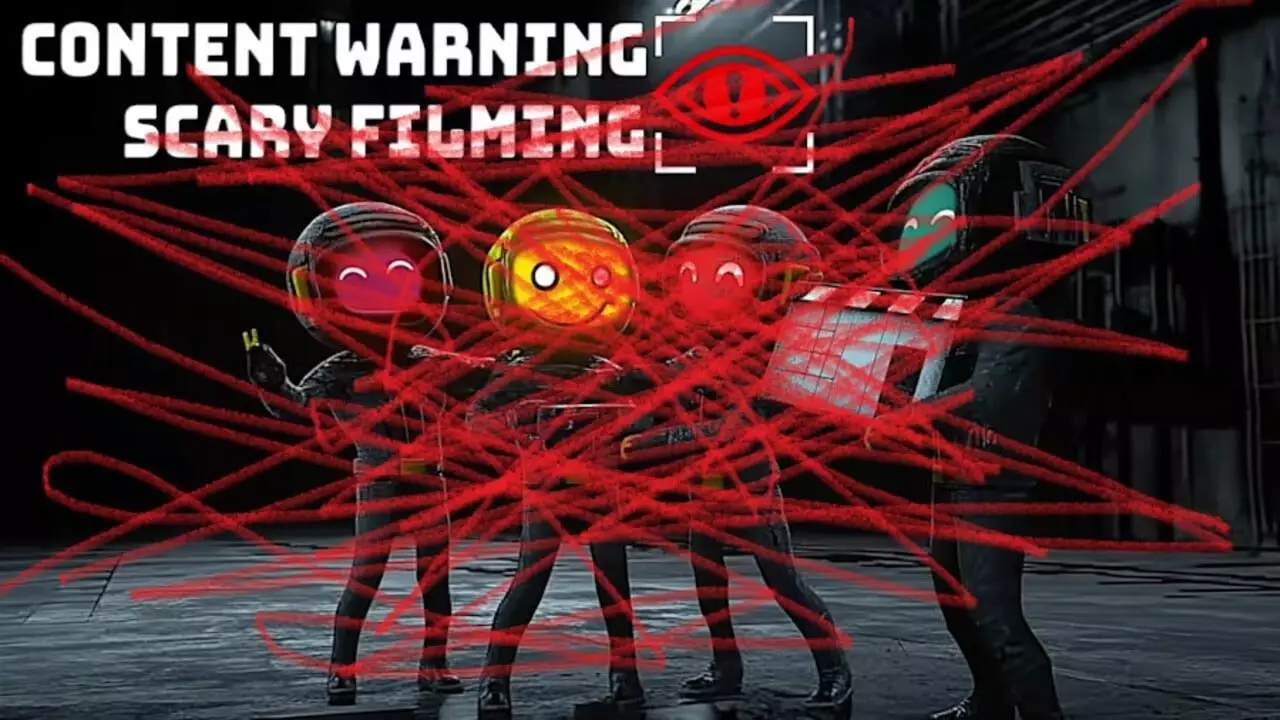As the gaming landscape evolves, particularly with the recent advancements in online content sharing, one genre seems to be at the forefront—a genre that marries horror with the adrenaline-fueled rush of going viral. In April 2024, the release of Landfall’s Content Warning for PC showcased this trend effectively, combining elements of both horror and social media with a humorous twist. Set within a first-person co-op framework, players capture terrifying events and share them on a platform reminiscent of YouTube, thus turning frightful chills into likes and digital clout. This blend of gameplay mechanics not only entertained but also resonated with a generation raised in the age of influencers and constant content bombardment.
Copycats and the Imitation Game
However, this success has drawn the unwelcome attention of clone creators looking to exploit the concept without putting in original effort. The imminent release of Content Warning: Scary Filming on March 13th highlights the trend of clone games filling the market with unoriginal and shameless copies. Designed to mimic Landfall’s groundbreaking title, this single-player endeavor by BurleaGamesStudio describes itself as a collaborative horror experience, yet the similarities are glaring. With minimal innovation being introduced, it raises an important question: does the gaming industry have a moral responsibility to harness originality rather than ransack creativity?
The Fallout of Unchecked Imitation
The rise of these clone titles has sparked frustration not only among gamers but also within the original developers themselves. Landfall has proactively addressed this issue, revealing their ongoing efforts to flag and remove these unsanctioned copies from platforms like the Nintendo Switch eShop. Their YouTube warning is a testament to their commitment to championing creative integrity. As game cloning proliferates, developers like Landfall are left playing a defensive game instead of focusing on innovation and optimization—qualities that would ultimately benefit the players.
Ironically, Content Warning itself is not entirely innocent in this regard, as it borrows from the mechanics established by previous titles like Zeekerss’ Lethal Company. The line between homage and outright imitation is often thin, complicating the landscape of originality in gaming. It begs discussion on whether iterations can coexist peacefully with their progenitors or if direct parallels endanger the fabric of creative gaming.
The Urgent Need for Vigilance Among Gamers
Consumers must remain vigilant in this clone-ridden ecosystem. Gamers today are tasked not only with enjoying their preferred software but also with discerning the authentic from the counterfeit. As digital platforms allow creators to gain traction, it is crucial to support original work to foster innovation and creativity in the gaming community. Questions linger regarding ethical consumption: do we, as players, have a role in the restriction of clones? Should we elevate the voices of those who create rather than those who replicate?
This period in gaming serves as a crucial reminder that creativity must prevail over imitation. As the community moves forward, it nourishes a vital conversation about originality, its challenges, and the imperative need for gaming industry players to foster an environment where innovation thrives over replication.

